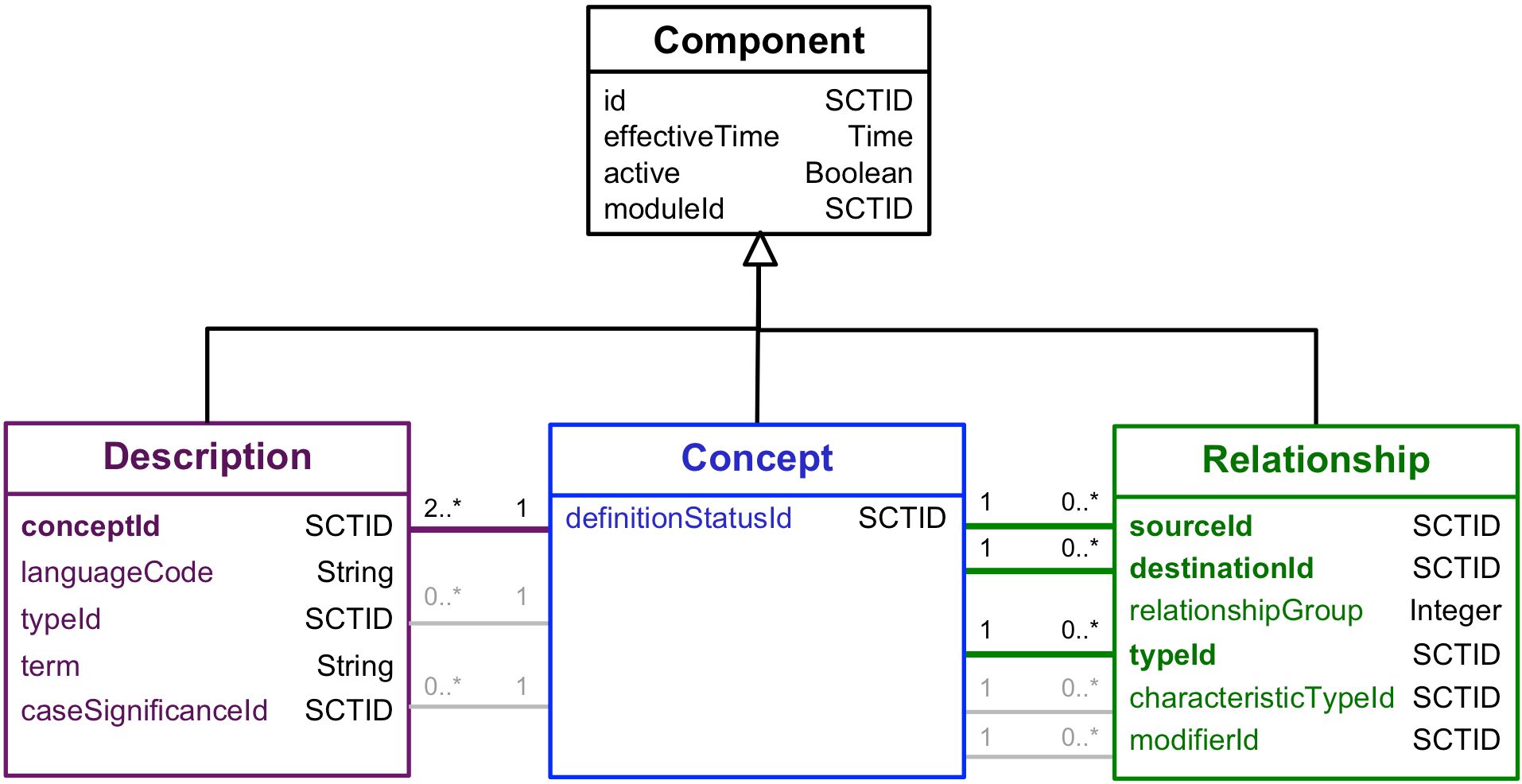The logical model of
between the components in the release files are depicted in the following diagram. The component class represents columns present in all three component files. The individual classes (description, concept and relationship) only show the additional columns present in those files. The colored lines between descriptions and concepts and between relationships and concepts represent the link between the foreign keys (shown in bold) and the id of the concept. These provide the functional connections between components described in this document. The grey lines indicate additional links between columns that are populated with concept identifiers that provide enumerated values.

Each
is represented by a row in the
and the concept is identified by the id column in that row. There can be more than one row with the same id but with different effectiveTime values, in which case each of these rows represents a version of that same concept. Thus each row represents a version of a clinical
Each
has two or more
associated with it:
At least one
| Gloss |
|---|
| Space | true |
|---|
| t | Fully Specified Name; |
|---|
|
andAt least one
Each
is represented by a row in the
and is identified by the id column in that row. There can be more than one row with the same id but with different effectiveTime values, in which case each of these rows represents a version of that same description. Thus each row represents a version of a description. Each description applies to one concept to which it is linked by the conceptId. All versions of a description must relate to exactly the same identified concept (i.e. the conceptId must not change between versions).
Each
from a source
to a destination
is represented by a row in the
. There can be more than one row with the same id but with different effectiveTime values, in which case each of these rows represents a version of that same relationship. Thus each row represents a version of a relationship. The source, destination and type each relationship are identified respectively by the sourceId, destinationId and typeId columns. All versions of a relationship must have the same sourceId, destinationId and typeId. The typeId refers to
that is also held within the
. The only concepts that can be used as the relationship typeId are
| Concept |
|---|
| t | 116680003|is a| |
|---|
| ShowFormat | inline |
|---|
|
or concepts that are subtypes of
| Concept |
|---|
| t | 410662002 |Concept model attribute| |
|---|
|
.
The most basic form of
is the
| Concept |
|---|
| t | 116680003|is a| |
|---|
| ShowFormat | inline |
|---|
|
relationship. This relationship states that one
is a subtype of another
. Each subtype concept is connected to its parent subtype(s) by relationships with the typeId
| Concept |
|---|
| t | 116680003|is a| |
|---|
| ShowFormat | inline |
|---|
|
and this form the main SNOMED CT
In this
a
may have more than one parent
. The root of the
is
| Concept |
|---|
| t | 138875005 |SNOMED CT Concept| |
|---|
|
, which has a set of top level
each forming its own
with typeid values that are subtypes of
| Concept |
|---|
| t | 410662002 |Concept model attribute| |
|---|
| ShowFormat | inline |
|---|
|
are referred to as attribute relationship and contribute to the formal definition of the source concept.
